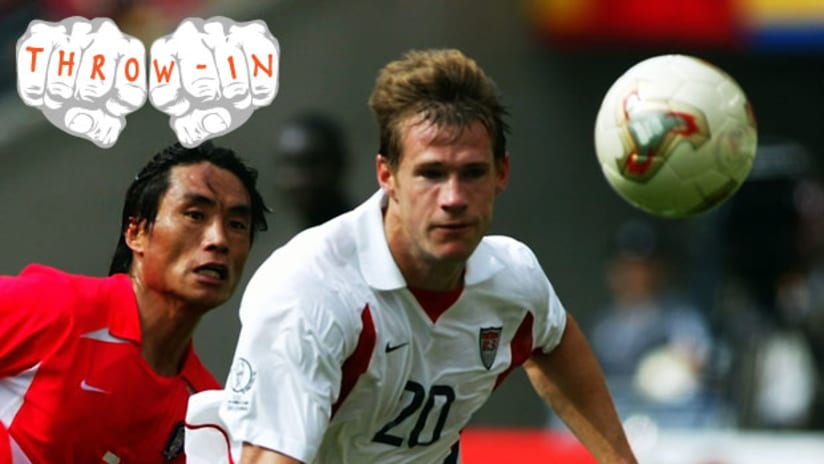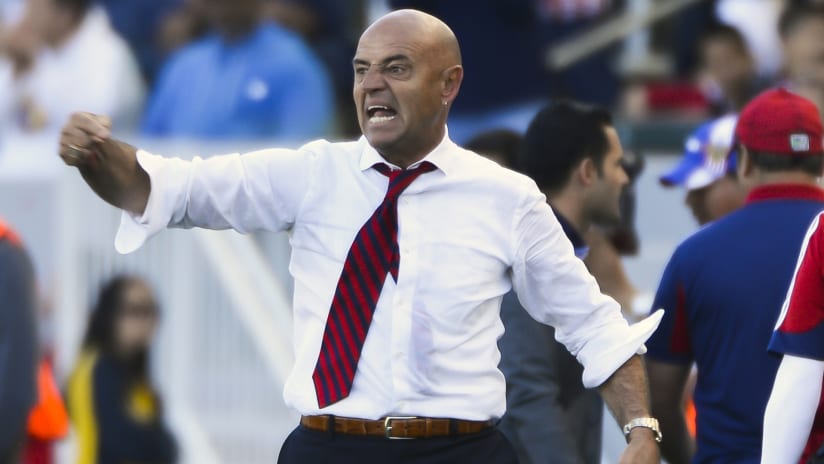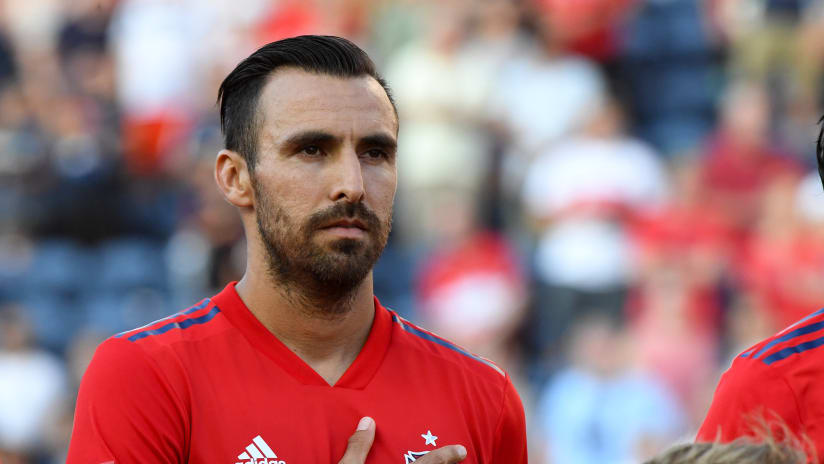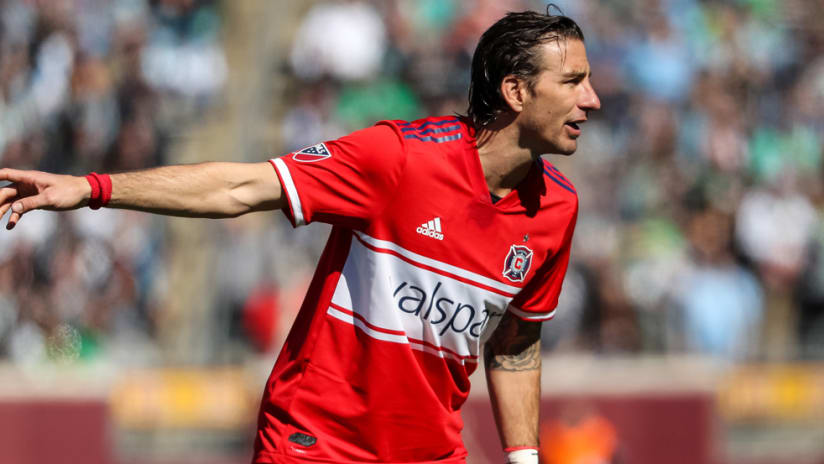Brian McBride won’t start in his final professional soccer game on Saturday. He might not even play. And that’s probably fine with him.
In fact, McBride is the last guy who wants the attention on him. He even appeared a little bit uncomfortable during the salutes to him last weekend at Toyota Park and earlier this month at Soldier Field.
WATCH: McBride's home farewell
So with an epic career about to come to a close, let’s do as the retiring American legend would prefer, and not focus on him. Let’s focus on me.
I’m not one of those Americans who had the Beautiful Game coursing through his blood from birth. I had no connection to the sport through immigrant parents or a passionate peer group who lived and died soccer. I played AYSO, sure, but who didn’t?
Still, I was always a sideline fan of the sport. During World Cups, my ears perked up. I knew my Valderramas from my Klinsmanns. I marveled at Roberto Baggio’s braided mullet. For a non-indoctrinated fan, goals were the universal language that I could speak. I knew a great goal when I saw one.
And Brian McBride was great. Like a lot of American fans, I was drawn in by the way he scored—which he did plenty. But something began to happen as I kept watching America’s hardest-working striker. I started to appreciate how he scored those goals.
He wasn’t blazing past hapless defenders with god-given talent like Maradona. He wasn’t sharpshooting them into the corners with innate accuracy like Romário. He wasn’t a brutish force in front of goal like Stoichkov.
[inlinenode:320454]But he was the epitome of the get-there-at-all-costs mind set, of sacrificing his own body to do whatever the team needed to get on the board. And it was plain to see.
His heroic performance at the 2002 World Cup—in and of itself, regardless of the US’ quarterfinal run—may have been the thing that turned me into a soccer fanatic. This guy didn’t have the skill of the superstars, but he made the most of what he did have.
He played the way the game was supposed to be played: with heart, desire and the willingness to play for the team no matter what. Countless broken noses, facial bones and bloody collisions tell you all you need to know. He made me appreciate what it took to succeed in the game, and what it looked like when hard work was rewarded.
In my years as a soccer journalist, I came to respect McBride in completely new ways. No matter where he was in his career, how many plaudits came his way from American, English or global press, McBride was the same guy: totally devoted to his family and completely down to earth.
There was the time our phone connection kept going dead just before Bruce Arena named his 2006 World Cup team. “Hey. It’s Brian. Juuuuust trying to get in touch with you,” he comically said on my voicemail, as if he were an old college drinking buddy.
Or the time he had to postpone an interview when I came to visit him at Fulham because he had to drive one of his daughters to ballet. Naturally, he stopped by after training, gave me his cell number and told me to call him later. I did, and got his voicemail—his daughter, of course, was the voice on the outgoing message.
There was the time I checked in on the 2008 US Olympic team at camp before they left for Beijing. McBride was napping, I was told. Which was fine, I was talking to the younger players. Fifteen minutes later, there was McBride walking into the lobby in flip-flops to find me, just to say hello.
He is perhaps the most accomplished, respected American soccer player in history. And he’s about as normal a dude as you will ever find. His farewell at the Home Depot Center on Saturday will be decidedly low-key—in fact, it’ll be overshadowed by the Chivas USA home crowd’s farewell to Jonathan Bornstein.
And that’s perfect. For a guy who wants nothing more than to pass the baton on to the younger guys, to keep it all about the greater goal—well, it’s the ideal symbolism. There aren’t many like you, Brian. We’ll miss you.
Another goodbye—but not really
[inlinenode:315225]It’ll be a pretty significant weekend of farewells in MLS. Besides McBride, 96ers Jaime Moreno and Eddie Lewis are stepping away, as are longtime icons C.J. Brown, Mike Petke and Chris Klein.
Bornstein is another matter. He’s not a veteran dating back to the early days of MLS, like the aforementioned sextet, but the 25-year-old has certainly earned the right to be called an icon.
He’s the last link back to Chivas USA’s formative years and is now the last of the homegrown US national-team trio—with Brad Guzan and Sacha Kljestan—to move on to foreign leagues. Bornstein will join up with Mexican side Tigres UANL as soon as the season wraps.
The LA-area native has been preparing for his move South of the Border by getting a crash course on life in Monterrey from Chivas teammate Paulo Nagamura, who spent five months with Tigres earlier this year.
Bornstein has also been brushing up on his español by engaging in conversation with his Spanish-speaking teammates. He’s been augmenting that with Rosetta Stone courses and watching liberal doses of telenovelas.
“It’s actually a really good way to learn,” he told MLSsoccer.com on Wednesday. “They speak the perfect, slow Spanish. Cartoons are another good way because it’s so basic for kids. That’s kind of the Spanish level I’m at anyway.”
Gone from Chivas USA, and bizarrely absent from the US national team’s January training camp. Weird.
But we may still see Jonny B back on MLS pitches sooner rather than later. Tigres are known to make preseason trips to the US to train, and the Monterrey-based club could end up back in the States next summer for SuperLiga.
“That’d be exciting,” Bornstein said. “I’m actually really hoping for that.”
Jonah Freedman is the managing editor of MLSsoccer.com. “The Throw-In” appears every Thursday.













